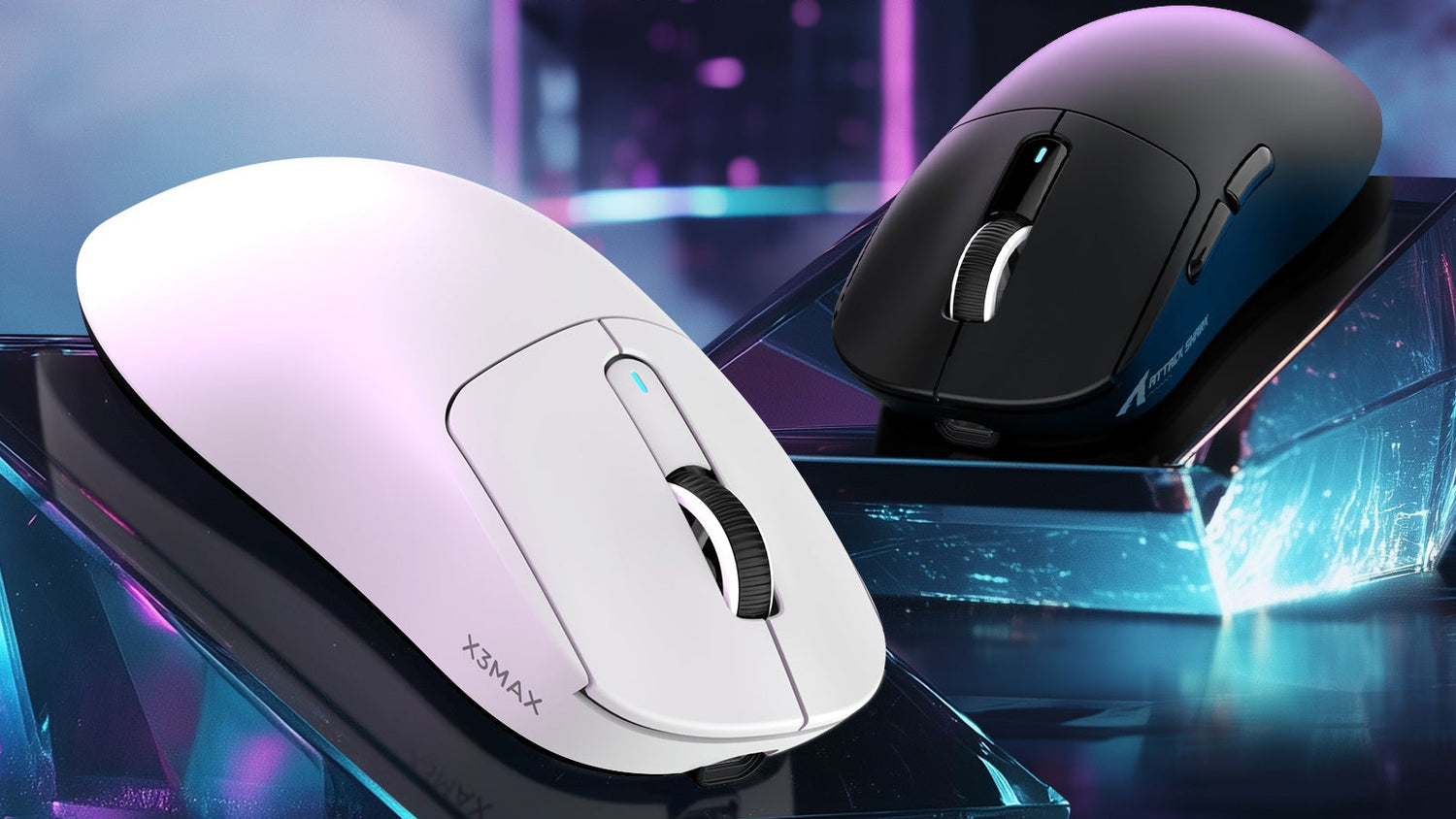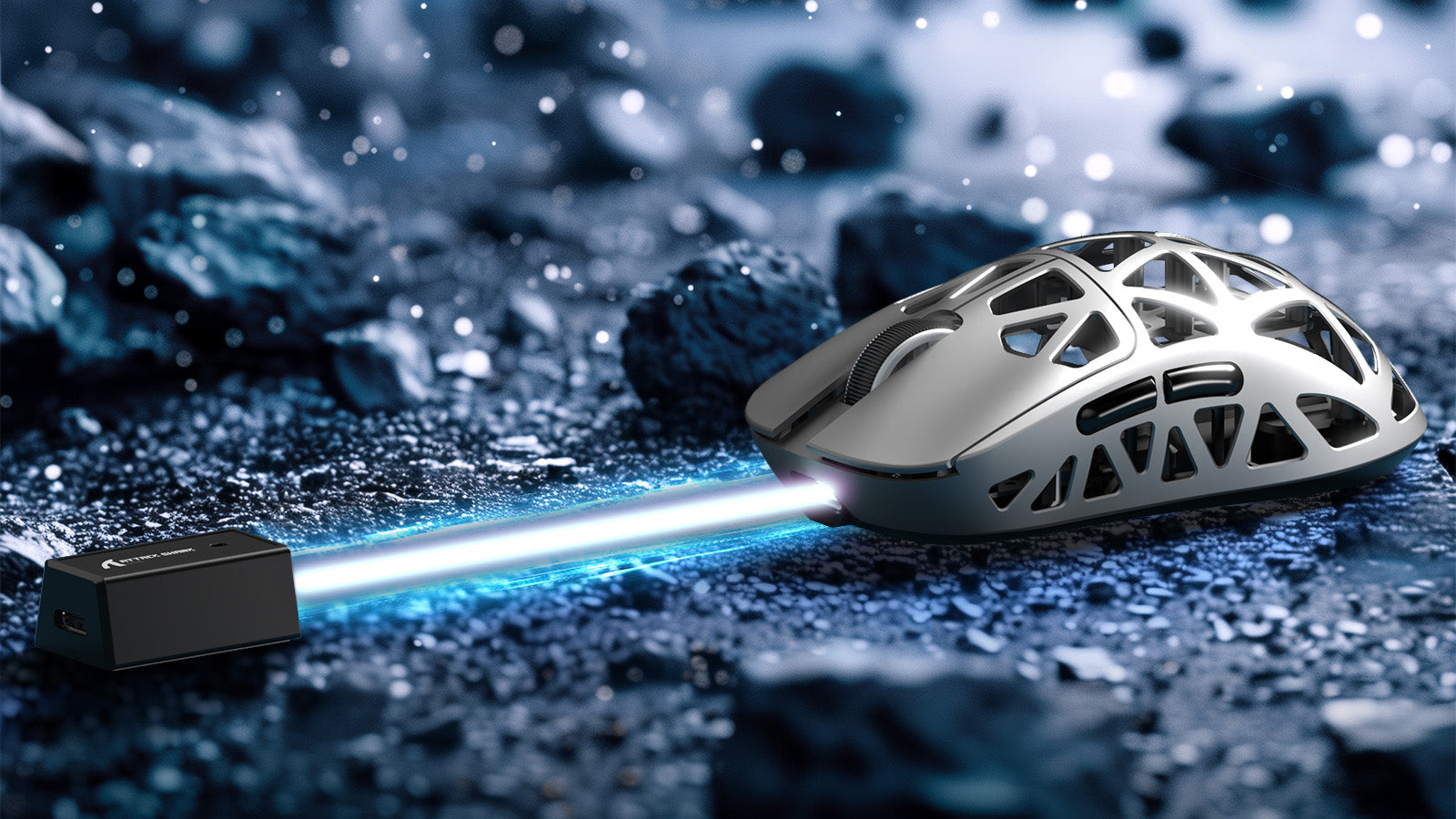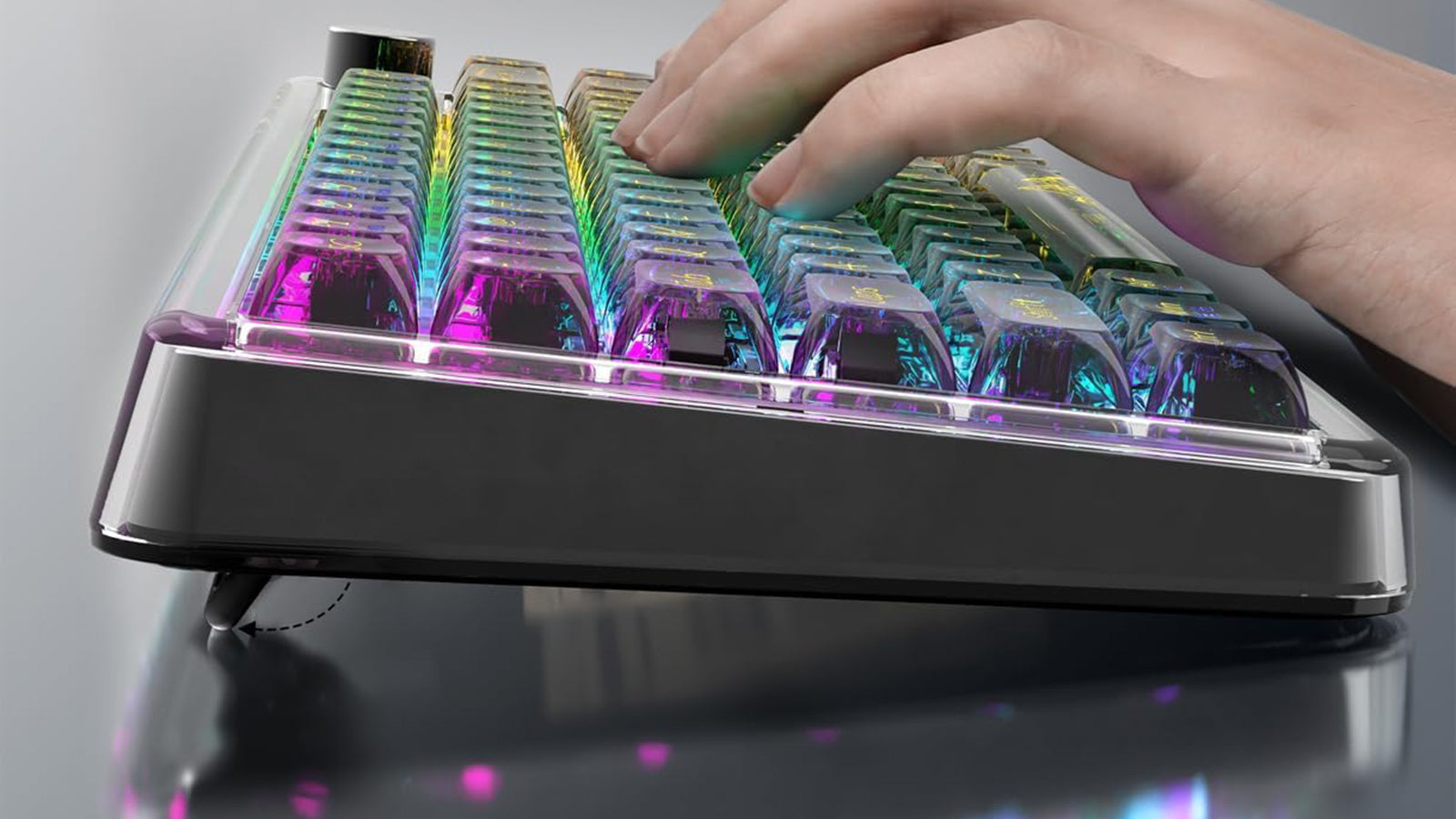Choosing the right gaming mouse is more than just about how it looks or feels in your hand. One of the key aspects, and often not the most talked about, is its weight. Yes, a few grams heavier or lighter can change the game—literally. In this article, we'll tell why the weight of your mouse matters for your gaming experience and how you can figure out the best weight that suits your style. Don't worry about brand biases here; we're just focusing on helping you find a comfortable fit that could help you play better and longer.
Why Does Mouse Weight Matter?
The weight of your gaming mouse plays a critical role—it can influence your response time, the precision of your movements, and how long you can play without fatigue setting in.
The Weight Range
The common weight range for gaming mice varies widely, starting from as light as about 70 grams to well over 120 grams. Lighter mice, generally between 70-85 grams, are favored by players who rely on quick wrist movements, allowing rapid directional changes with minimal drag. Mid-weight mice hover around 85-100 grams, providing a versatile balance that suits a variety of gaming styles. For those seeking substantial feedback from their movements, heavyweight mice, anywhere from 100-120+ grams, might be the ideal choice.
The Feel of the Mouse
Heavier mice demand more from your forearm muscles, potentially leading to a quicker onset of fatigue during extended use. This could dampen your competitive edge in long sessions. On the contrary, ultra-light mice may challenge your precision, as they react to even slight, unintentional hand tremors. It's all about finding the right resistance to match your dexterity.
Materials Make a Difference
Mice are constructed from various materials which contribute to their overall weight. Standard plastic bodies offer a lightweight solution, often accompanied by hollowed-out designs or honeycomb patterns to reduce mass further.To understand how these components work together, take a look at what's inside your computer mouse. Additions like metal scroll wheels or weighted inserts can bring additional heft for those desiring more inertia.
Balance and Movement
A centered weight distribution ensures that the mouse feels balanced in your hand—neither tilting forward nor backward during use. Some mice feature internal weight distribution systems, allowing users to shift the center of gravity to match their grip style and movement preferences.
It's less about following the crowd and more about knowing what works best for you—because when you're comfortable with your gaming mouse, you're at the top of your game.

Personal Preferences and Play Styles
Whether you're a casual player or a competitive e-sports enthusiast, the type of games you play and how you play them greatly influence your ideal mouse weight.
Game Genre Considerations
Each gaming genre presents unique challenges and requires various skills that can be complemented by finding the right gaming mouse weight:
- First-Person Shooters (FPS): In high-stakes FPS games such as 'Call of Duty' and 'Overwatch,' swift reflexes are crucial. The trend has shifted towards even lighter mice, with the most sought-after models weighing about 50 grams and some enthusiasts advocating for mice as light as 40 grams. These ultra-lightweight designs not only allow for rapid movements and lightning-fast aiming but also maintain the accuracy needed for precise shooting, solidifying their status as a preferred option within the gaming community.
- Multiplayer Online Battle Arenas (MOBA) & Real-Time Strategy (RTS): Games such as "Dota 2" or "StarCraft II" require a blend of quick cursor movement and precise command execution. A midweight mouse, typically ranging from 85-100 grams, offers the necessary stability for accuracy without sacrificing the agility needed for navigating maps and managing units.
- Massively Multiplayer Online (MMO) Games: MMOs like "World of Warcraft" often involve long sessions with complex ability rotations and critical in-game decisions. A slightly heavier mouse, tipping over 100 grams, may be preferable here. This weight helps keep your hand steady, reducing the chances of accidental clicks during marathon raids or high-stakes PvP encounters.
The trend towards lighter mice, especially for shooters, aligns with the high-speed, precision-dependent nature of such games. The reduced weight allows for minimal resistance, enabling swift movements without causing undue fatigue, which is crucial for maintaining performance throughout extended gaming sessions. As a result, many serious FPS players now lean heavily towards light gaming mice, with manufacturers responding by producing specialized models that cater to this demand.

Your Gaming Grip
How you hold your gaming mouse—your grip style—affects your weight preference too:
- Palm Grip: With the entire hand resting on the mouse, a heavier mouse might feel more stable and comfortable.
- Claw Grip: This grip balances the mouse between the fingertips and the back of the palm, making a midweight mouse a good fit for both control and agility.
- Fingertip Grip: Only the fingertips touch the mouse, typically calling for a lightweight mouse that's easy to flick without straining the fingers.
Your grip style is just one factor to consider when choosing a mouse - learn more about finding the perfect fit in our guide: How to Choose a Mouse That Suits You.
Ergonomics and Endurance
The right gaming mouse weight also minimizes strain and maximizes comfort. A mouse that's too heavy may cause fatigue over time, while one that's too light could lead to unnecessary hand tension. It's important to find a weight that feels natural and doesn't force your muscles to work overtime.
Sensitivity Sync
Mouse sensitivity, measured in dots per inch (DPI), plays a role in finding your weight sweet spot. Gamers using high DPI settings for ultra-sensitive cursor movement often pair this with a lighter mouse for effortless motion. Conversely, lower DPI settings can be matched with a heavier gaming mouse for controlled, deliberate movements. Beyond DPI, some mice offer advanced features like motion sync to further refine tracking responsiveness.
Navigating through these personal preferences will require some self-awareness and possibly a bit of trial and error. But getting it right means a more enjoyable gaming experience.

How to Test Your Own Mouse Weight
Selecting the ideal gaming mouse weight isn't just guesswork; it can be an exact science. Here's a guide to conducting your own weight test effectively.
Step-by-Step Testing Guide
- Establish a Baseline: Start with the gaming mouse at its default weight (or medium weight if you have adjustable options) to establish your baseline feel during normal gameplay.
- Change in Small Increments: If you're using an adjustable-weight mouse, make changes in small increments. It’s easier to notice subtle differences this way.
- Play Various Genres: Test the mouse with different types of games to see how weight affects your performance across various scenarios.
- Take Notes: Keep a record of your observations. How does each weight change affect your precision, comfort, and reaction time?
- Consistent Setup: Use the same mousepad and DPI settings throughout your testing to ensure consistency.
- Duration: Give yourself enough time with each weight setting. A quick session may not be indicative of the true feel.
- Blind Testing: If possible, have someone else adjust the weights for you so you can test without bias.
- Physical Check-In: Regularly check in with your body. Are there any signs of strain or discomfort with certain weights?
Assessing Performance and Comfort
As you test, assess your performance through two lenses: objective data and subjective feel.
- Objective Data: Look at in-game statistics like accuracy, kill/death ratio, or clicks per minute that might provide insight into performance.
- Subjective Feel: Pay attention to how 'right' the gaming mouse feels in your hand. Does it glide as you want it to? Do your movements feel natural and effortless?
Trusting Your Instincts
At the end of the day, your instincts are invaluable. You might find that despite what the data says, a particular weight just feels 'off'—and that’s okay. Trust these feelings. The goal is to find the weight that makes you forget about the mouse in your hand so you can fully immerse yourself in the game.
Finding Your Gaming Mouse Sweet Spot
Finding the perfect gaming mouse weight intersects with your play style, game choices, grip, and comfort requirements. From sharpshooters in frenetic FPS arenas to strategists in grand MMO worlds, all gamers seek that unique balance where technology meets instinct. By understanding how weight influences performance, factoring in material and design, and considering your own physicality and preferences, you can identify a mouse that feels like a natural extension of your gaming persona. Remember, it's about what aligns with your personal ergonomics and enhances your gameplay experience. Trusting your instincts after careful testing will lead you to the mouse weight that elevates your game, ensuring that every click, every move, and every moment spent in the virtual realm is as seamless and responsive as possible.





Leave a comment
This site is protected by hCaptcha and the hCaptcha Privacy Policy and Terms of Service apply.